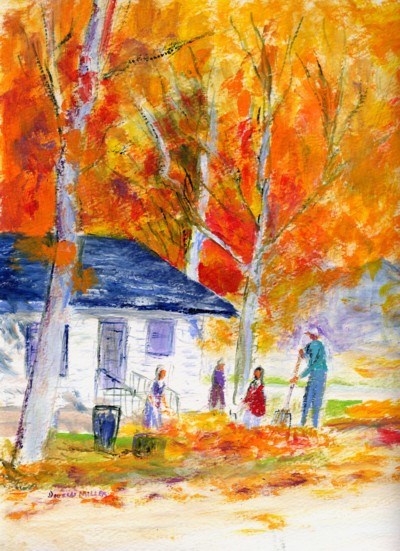When you look through the archives of The MY HERO Project, you will find that the thousands of different writers of the stories that appear on the website often choose to emphasize the virtues of their hero. Reading these stories you probably would not be surprised to find heroes characterized by such virtues as faith, perseverance or compassion. However, you will find very few stories that emphasize the virtue of humility, not because the hero necessarily lacks humility, but because I think humility is perhaps the least understood of all heroic virtues.
I believe humility is not embraced as a primary virtue for heroes because it gets a bad rap. Among other reasons, in a culture that values and rewards fortune, fame and self-promotion, humility doesn’t seem to be a very important virtue.
So what is humility?
Humility is knowing the difference between those things that we have the power to change and those things we do not. Humble people know the only things they really have control over are their own attitudes, intent(s) and action(s). They know controlling or trying to control other people, circumstances and outcomes is an exercise in pride and self-promotion.
Humility is also the grace and willingness to admit that we are not always right. Humility is realizing that no matter how righteous a hero’s cause may seem no one has a corner on the truth. In humility heroes believe that all education, enlightenment, growth and development begin not with certainty or absolute clarity but rather with questions, even confusion.
Why is humility important to the heroic quest?
Heroes know they are not self-made. It is not unusual to hear them attribute their heroic vision or action to an epiphany, source or higher power, Mysterium Tremendum, Great Spirit, or God. I have heard it said:
“ If I thought it was me, myself and I that called me to leave the comforts and security of a good job, a steady income and a split level ranch house to serve the poor in Africa, I would never have left my ‘Lazy Boy.’ But being called by something other than ego, well that’s a call worth answering.”
Humility nurtures perseverance. If heroes know that the only thing they really have control over are their intent and action, then when failure happens, as it often does, they know that they are singularly no more responsible for the failure as they are for their success. Armed with this knowledge heroes can get up, brush themselves off, learn from their mistakes, and try, try again.
Humility informs us that a heroic calling is not a do-it yourself project. Heroes may be rugged individualists but they are also dependent on others to bring their dreams alive and keep them alive long after they are gone.
Humility accepts imperfection and allows room to learn and grow, both professionally and personally.
In the end, humility enables heroes to let go of a heroic quest when it is complete, obsolete or served better by others.
How do we acquire humility?
Humility is not something we earn or learn from good works and words of self-deprecation. Speaking from personal experience, I can honestly say humility, like many virtues, including hope, compassion, faith, and joy, is an act of divine grace that seems to become a part of a heroic soul when one is busy doing something else.





Organizer created on 3/1/2011 9:50:19 AM by
Last edited 10/30/2018 12:19:54 AM by Anthony Pouw